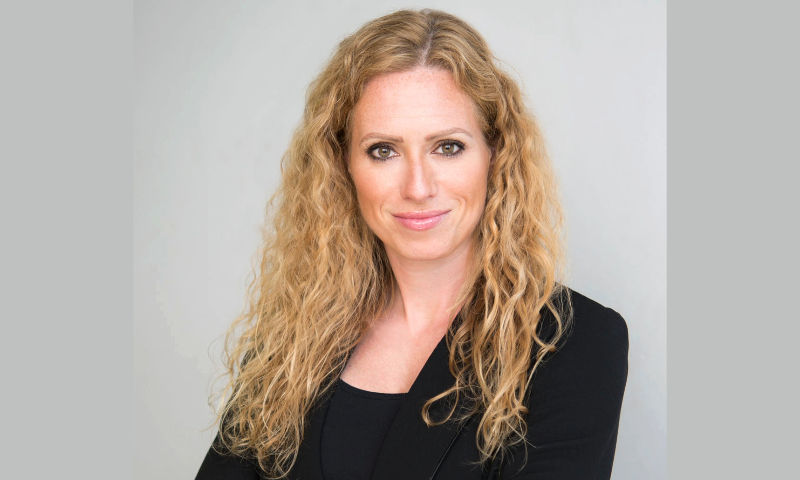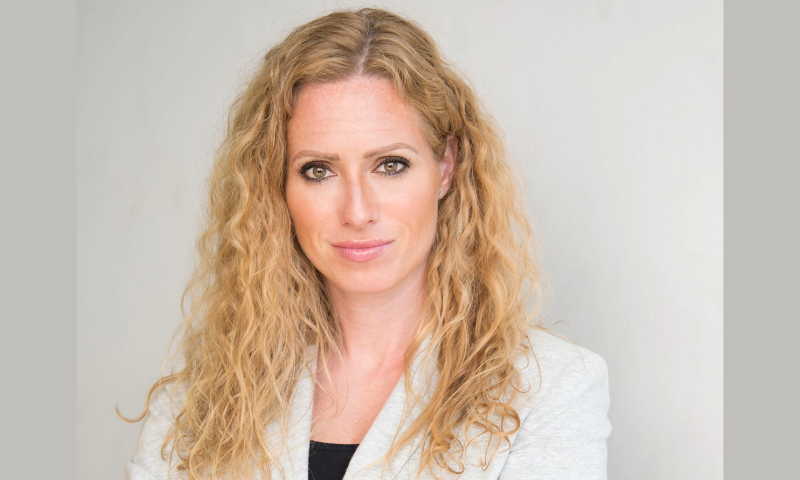Victoria Pelletier is a 20+ year Corporate Executive, Board Director, #1 selling author and Professional Public Speaker. Nicknamed the “Turn Around Queen” and the “CEO Whisperer” by former colleagues and employers, Victoria inspires and empowers her team and clients to change mindsets and drive growth in business, leadership and culture. As someone who does not subscribe to the status quo, she is always ready for new challenges becoming one of the youngest Chief Operating Officers at the age of 24, president by 35 and a CEO at age 41.
Throughout her career, Victoria has received many awards for her work in leadership, cuture and Diversity, Equity and Inclusion including: 2023 Women of Influence by South Florida Business Journal, a semi-finalist in the 2023 50/50 Women on Boards Women to Watch, Mentor of the Year by Women in Communications & Technology in 2020. HSBC bank awarded her the Diversity & Inclusion in Innovation award in 2019 As a prolific motivational and inspirational speaker, Victoria has delivered keynotes discussing the significance of Whole Human Leadership – being an empathetic and authentic leader, as well as the importance of personal branding and its impact on professional growth; the power of DEI on corporate cultures and building a life of resilience.
Recently, in an exclusive interview with CXO Outlook Magazine, Victoria shared her insights on how diversity & inclusion have evolved in the corporate environment, her career trajectory, challenges faced by her while working in the tech industry, secret mantra behind her success, pearls of wisdom, and much more. The following excerpts are taken from the interview.
According to you, how has diversity & inclusion evolved in the corporate environment? And what are the negative effects a lack of diversity can have on a corporate team?
Diversity and inclusion have undergone significant evolution in the corporate world over the years. In the past, diversity efforts primarily focused on compliance with regulations and were often seen as a legal obligation. However, today, diversity and inclusion have evolved into a critical business imperative and a source of competitive advantage for organizations. Here are some key ways in which this evolution has taken place:
Shift from Compliance to Strategy: Initially, diversity initiatives were driven by legal requirements and the need to avoid discrimination lawsuits. Now, they are recognized as strategic initiatives that can drive innovation, improve employee engagement, and enhance a company’s reputation.
Broader Definition of Diversity: The concept of diversity has expanded beyond just race and gender to include dimensions like age, sexual orientation, disability, and more. This broader definition acknowledges the uniqueness of each individual and their potential contributions.
Inclusion Matters: Inclusion has gained prominence alongside diversity. It’s not enough to have a diverse workforce; organizations now strive to create inclusive cultures where every employee feels valued, respected, and empowered to contribute their best.
Data-Driven Approaches: Many companies now use data and analytics to track their diversity and inclusion efforts. This allows them to identify gaps, set goals, and measure progress more effectively.
Leadership Commitment: Corporate leaders are increasingly recognizing the importance of setting the tone from the top. They are championing diversity and inclusion efforts and holding themselves accountable for progress.
Employee Resource Groups (ERGs): ERGs have become common in many organizations, providing employees with a platform to connect, share experiences, and drive change within the company.
What are the negative effects a lack of diversity can have on a corporate team?
A lack of diversity in a corporate team can have several detrimental effects, both on the team itself and the organization as a whole:
Limited Creativity and Innovation: Homogeneous teams often struggle to generate creative ideas and innovative solutions. Diversity of thought, stemming from different backgrounds and perspectives, is a catalyst for innovation.
Reduced Problem-Solving Capability: Diverse teams tend to be more effective at problem-solving because they bring a wider range of viewpoints to the table. A lack of diversity can lead to groupthink and suboptimal decisions.
Decreased Employee Engagement: Employees from underrepresented groups may feel excluded or undervalued in a non-diverse environment, leading to lower engagement, job satisfaction, and retention rates.
Negative Impact on Reputation: In today’s socially conscious world, a lack of diversity can harm a company’s reputation. It may be viewed as a sign of outdated values and insensitivity to societal concerns.
Legal and Regulatory Risks: Failure to promote diversity and inclusion can expose a company to legal and regulatory risks, including discrimination lawsuits and damage to brand reputation.
Missed Market Opportunities: Lack of diversity can result in a limited understanding of diverse customer segments, causing companies to miss out on market opportunities and consumer insights.
In conclusion, the evolution of diversity and inclusion in the corporate environment has shifted from compliance-driven initiatives to strategic imperatives. A lack of diversity can lead to a range of negative effects, from reduced innovation and employee engagement to legal risks and damage to reputation. Embracing diversity and fostering inclusion is not only the right thing to do but also a key driver of business success in today’s globalized and diverse marketplace.

Victoria, please brief us about your professional background and areas of interest.
I am a 20+ year C-suite executive, almost all of which have been in B2B Professional Services organizations; consulting, technology and outsourced services to Fortune 500 clients. Additionally, I have served on the Board for many organizations, including not-for-profit orgnizations that align closely with my personal passion and values, including supporting new immigrants to the country, children in need, diversity-focused organizations and more. I am also a #1 selling published author and a professional public speaker. I have been very focused on DEI for many years and also around Whole Human Leadership and strong organizational culture.
You are a Board of Director at Olive Group Ltd. Can you tell us about this platform and its mission?
Olive is an open banking, payments-driven technology for businesses wanting to help customers reach financial goals by generating new deposits and donations inside of yourexisting customer experiences.
What are some of the challenges you’ve encountered while working in the tech industry, and how have you overcome them?
Because I didn’t study the field of technology and come with a business background of commercial and operational experience, I have been very focused on identifying client and business challenges and many of my more technical colleagues have focused on “tech for tech” vs problem solving for the clients we’re serving, so I’m often the one challenging the development and the way in which we go to market. It is often received with pushback by the organizations, but with a focus on data and strong performance and client feedback, my strategy and approach is often adopted.
Additionally, there still exists significant disparity in technology when it comes to diversity, specifically women in tech. I am very used to being the only, or one of very few, women in the room. Therefore, I have become a very vocal advocate and transformational leader with a heavy focus on creating greater diverse, equitable and inclusive workplaces and communities for those interested in the field of technology and I have been fortunate to be recognized for this work with multiple awards and recognition.
What are the top 3 must-have skills required to be a successful entrepreneur?
Being a successful entrepreneur requires a combination of skills, traits, and qualities. While there are many important skills, here are the top three must-have skills for an entrepreneur:
Adaptability and Resilience:
Entrepreneurship is filled with uncertainty and challenges. The ability to adapt to changing circumstances and bounce back from failures or setbacks is crucial. Entrepreneurs often face unexpected obstacles, market shifts, and economic fluctuations. Being adaptable and resilient allows you to stay focused on your goals, learn from failures, and pivot when necessary.
Problem-Solving and Critical Thinking:
Entrepreneurs are constantly presented with problems that require innovative solutions. Critical thinking skills enable you to analyze situations, identify opportunities, and make informed decisions. Problem-solving skills are essential for addressing everything from product development issues to market strategy challenges. Entrepreneurs need to think creatively and find practical solutions to complex problems.
Effective Communication and Networking:
Building and maintaining relationships is fundamental in entrepreneurship. Effective communication skills, both verbal and written, are essential for pitching ideas, negotiating deals, and conveying your vision to others. Networking skills help you connect with potential partners, investors, customers, and mentors. A strong network can provide valuable insights, support, and opportunities for growth.
While these are the top three must-have skills for entrepreneurs, it’s important to note that entrepreneurship also requires a wide range of other skills, such as financial literacy, leadership, time management, and the ability to take calculated risks. Additionally, qualities like passion, perseverance, and a strong work ethic play a significant role in an entrepreneur’s success. Developing a well-rounded skill set and continuously learning and improving are key to thriving in the entrepreneurial world.

How do you unplug and step away from work?
I have many interests the fuel my energy and allow me to thrive. These include time with my family and friends and my new fur-baby, our puppy Ashton. I am also very focused on health and wellness and fitness is a big part of my life and routine – I work out six days a week and enjoy music and podcasts while I work out. I love to have great experiences from new restaurants and art and music events and enjoy travelling.
What is the one lesson learnt that’s unique to being a woman leader?
Embracing Authenticity: I’ve discovered that authenticity is a powerful asset as a woman leader. In a world that sometimes expects women to conform to traditional leadership styles, embracing my authentic self and leadership style has been a unique lesson. I’ve found that being true to myself not only enhances my effectiveness as a leader but also sets a positive example for others.
You have been a recipient of prestigious awards and accolades over the years. What is the secret sauce behind your success?
There are many things that I would attribute my success to:
Passion and Perseverance:
The key to my success has undoubtedly been a combination of passion and perseverance. I believe that when you are genuinely passionate about what you do, it fuels your determination to overcome obstacles and continue working toward your goals, even when faced with adversity. Passion keeps you motivated and focused, and perseverance helps you push through challenges and setbacks.
Continuous Learning and Adaptation:
One of the key ingredients in my success recipe has been a commitment to continuous learning and adaptation. In today’s rapidly changing world, staying up-to-date with industry trends, technology, and best practices is essential. I’ve always sought opportunities to expand my knowledge and skill set, and I’ve been willing to adapt my strategies and approaches when needed. This flexibility has allowed me to thrive in dynamic environments.
Effective Networking and Relationship Building:
Building and nurturing meaningful relationships with colleagues, mentors, and industry peers has played a significant role in my success. Networking isn’t just about connecting with others; it’s about creating a supportive community of individuals who can offer guidance, share insights, and collaborate on opportunities. The secret includes leveraging these relationships for mutual growth and advancement, and from a place of generosity versus greed in how I look at networking and relationships.
A Strong Work Ethic and Discipline:
A strong work ethic and discipline are essential ingredients in my success. Consistency and a commitment to putting in the necessary effort, day in and day out, have been pivotal. Success rarely happens overnight, and I’ve learned that consistent, focused work is the foundation upon which achievements are built.
Embracing Failure as a Stepping Stone:
Failure, rather than being a setback, has been a stepping stone to my success. I view failures as opportunities to learn, grow, and refine my approach. The willingness to take risks and learn from both successes and failures has been a crucial part of my journey.
Surrounding Myself with a Talented Team:
One of the key secrets to my success is recognizing the importance of surrounding myself with a talented and dedicated team. No one achieves success in isolation, and a high-performing team can amplify your efforts and bring diverse skills and perspectives to the table.
Each of these ingredients has played a role in shaping my path to success. It’s important to note that the “secret sauce” can vary from person to person, but these principles have consistently contributed to my achievements and may offer valuable insights to others on their own journeys to success.

Where do you see yourself in the next 5 years?
In five years, I see myself continuing to evolve as a dynamic leader and influencer in both the corporate and social impact spheres. My primary career goal is to secure a CEO-level role where I can leverage my expertise in leadership, culture, and diversity, equity, and inclusion (DEI) to drive meaningful change within an organization. I am committed to applying the insights and experiences I’ve gained over the years to lead and inspire teams toward greater success.
Additionally, I aspire to expand my impact beyond a single organization by joining other boards of for-profit companies. These board roles will allow me to contribute strategic guidance and governance while broadening my network and knowledge in different industries.
Simultaneously, I plan to continue my work as a speaker and advocate for leadership, culture, DEI, and social responsibility. My passion for making the world a better place to live and work remains a driving force in my life. I intend to use my platform to raise awareness, share best practices, and inspire positive change within organizations and communities.
Overall, my vision for the next five years is to integrate my experience, skills, and values to lead effectively at the executive level, serve on boards, and continue advocating for causes I am passionate about. I am excited about the journey ahead and the opportunities to make a lasting impact in both the corporate and societal realms.
What advice do you have for professionals who are just starting out?
As someone who has navigated various stages of their career, my advice for those at the beginning is to focus on building a strong foundation while remaining open to opportunities and personal growth. First and foremost, invest in building a solid skill set and a reputation for reliability and diligence. Excellence in your work, regardless of its scope, is a stepping stone to greater responsibilities and opportunities.
At the same time, keep an open mind. Early in your career, you might not have a clear path or know exactly where you want to end up, and that’s perfectly fine. Be open to different experiences and roles, as they can help you discover your true passion and strengths.
Networking is another critical aspect. Cultivate relationships with mentors, peers, and industry professionals. Networking can provide valuable guidance, insights, and opportunities throughout your career.
Lastly, never stop setting goals and challenging yourself. Continuously strive for personal and professional growth and be curious. It’s okay to have ambitious aspirations; they can be a powerful motivator. In conclusion, build a strong foundation, stay open to opportunities, nurture your network, and never stop challenging yourself. Your career is a journey, and by embracing these principles, you’ll be better equipped to navigate it successfully.


